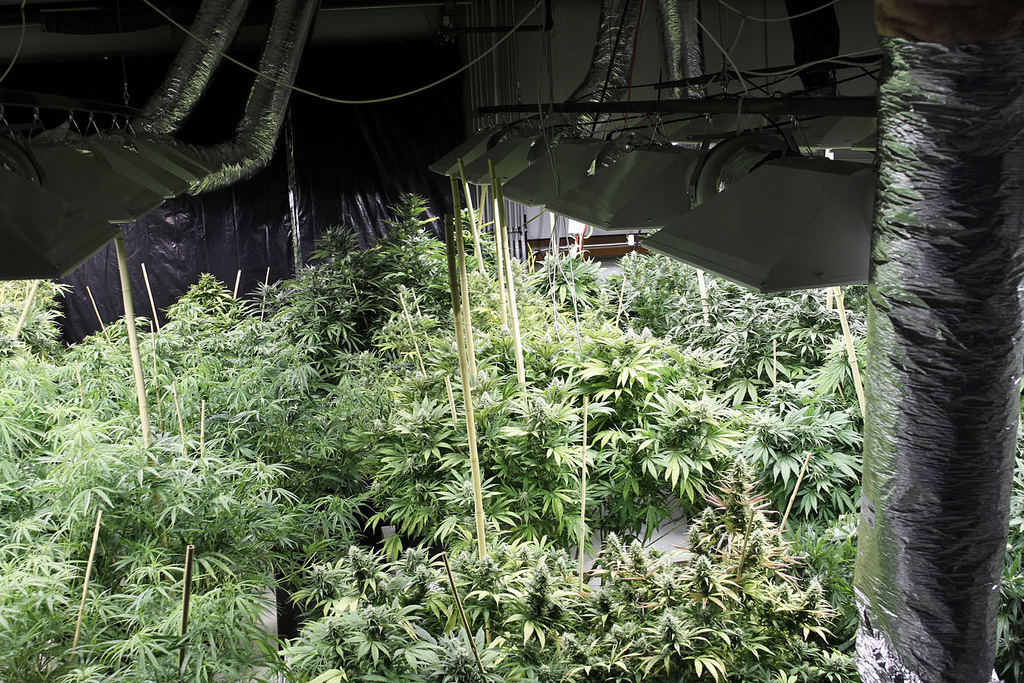The cannabis trade is a budding local industry in the U.S. these days. With recreational shops in Colorado and Washington up and (mostly) running, caregivers across the country are creating THC-, CBD-, and hemp-infused products for local medical markets.
Marijuana is the new hot penny stock trade, and both regions are creating strands like Napa Valley does wine, spurring crafty ganjapreneurs from all over the world to flock to these meccas and attempt to make money off the legal cannabis trade.
Growing marijuana is either an art or a science, depending on your outlook, but the legal business on the other side of the insulation in your grow room walls boils down to a few basics. Here’s what you need to know about the Colorado cannabis game.
1. Strand Quality
Seed pricing ranges vastly from “got lucky in a bud you bought” to $5 upwards of $20-30 for a seed. You can purchase seedlings for another $10-50. Your initial investment in seeds, however is quite low for the return..
The cannabis seed market isn’t federally regulated in the way that, say, the GMO-seed trade is. Big Tobacco, Big Alcohol, and Big Business have yet to do much more than keep their ears to the streets of Colorado and Washington. Banks will eventually lend to you, but you can’t file a Federal trademark or patent on an illegal seed yet.
2. Your Product’s Market
The good news is it’s still illegal to transport any forms of marijuana across state borders, in fact you can still be arrested for marijuana possession if you’re not careful. This means local or statewide distribution channels are all you need. This is how ganjapreneurs can compete with Wal-Mart and Amazon’s distribution systems without resorting to Herbalife pyramid schemes.
High-grade, top shelf buds, raw flowers are still the best selling products for both caregivers and dispensaries. For bottom shelf, your best bet, outside of operating on the Western slope, is to extract the THC to produce kief, oil, and/or hash.
These materials are used to fill vape cartridges, which sell upwards of $40 per 150 mg in Glenwoods Springs to even $50 and higher in other touristy areas, such as Aspen or Veil. You can also create edibles or, with proper equipment, shatter, budder, and other forms used for dabs.
3. There’s Oil in Them Hills
Regardless of your cannabis quality, you’ll want to save your trimmings. Every crystal on our plant is a speck of gold you don’t want to waste. On average, every ounce of trimmings creates one gram of oil, which can sell anywhere from $30 to $100 in bulk sales in Denver, Boulder, and other metropolitan areas east of the Rockies, and upwards of $300 per gram when packaged into prefilled cartridges for sale in tourist areas along I-70 to the west.
As a general rule, medical patients receive the best product and prices. Recreational users are charged much larger margins than medicinal users, and out-of-state recreational users pay the most, while also having purchases capped at a quarter ounce (or 250 mg of concentrate).
4. To Extract, or Not to Extract
Raw trimmings sell for the lowest prices (starting at $10/oz) because it can’t be sold to the consumer. The extraction method can be either too time-consuming, costly, or dangerous.
Many homemade and low-end commercial kits use butane to extract the THC. Butane is highly flammable, and explosion or fire can happen quite easily. Because of this, the process has been made illegal.
If you can afford the up-front payment of $100,000-250,000, you can get a CO2 extractor, which is much safer, and operates at a very minimal cost. Analysts across Colorado are reporting a variety of growers willing to operate at a loss in the beginning to purchase these machines, knowing they’re essentially building THC- and CBD-factories.
Regardless of what you do with your product you need to move it. The real ganja game isn’t like what you saw on “Weeds.” You need to start honing your craft and perfecting the tiniest of details. You’re swimming with the sharks now.
Brian Penny is a former Business Analyst at Bank of America turned whistleblower, freelance consultant, and troll. He’s a frequent contributor to The Street, Huffington Post, Cannabis Now, and Fast Company.
Photo Credit: Coleen Whitfield
